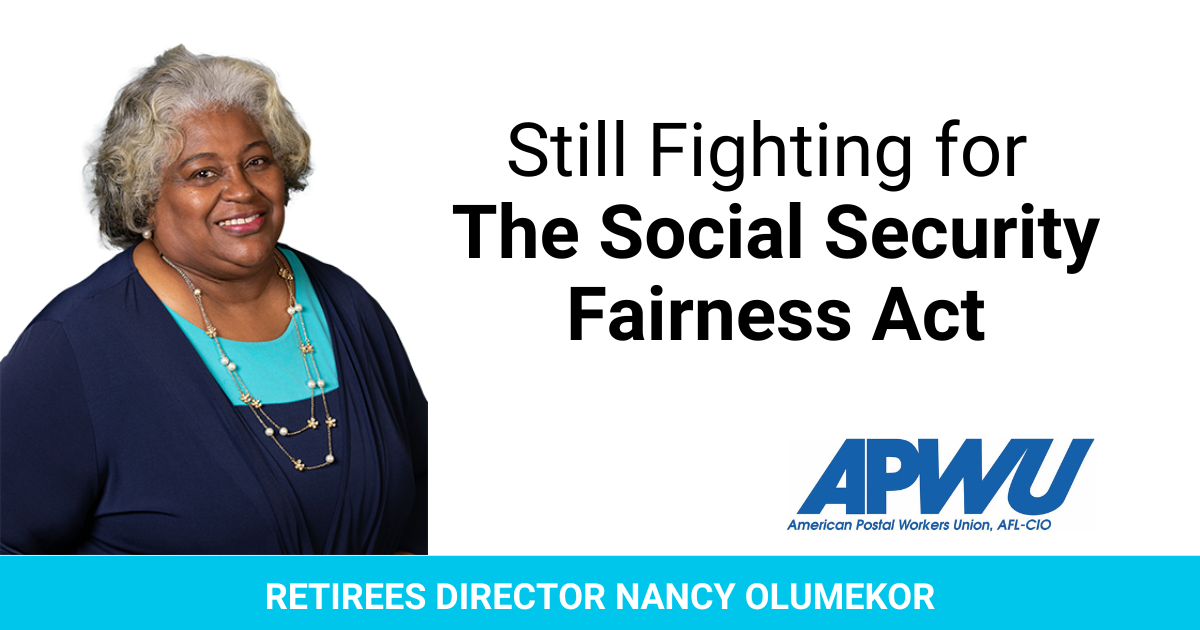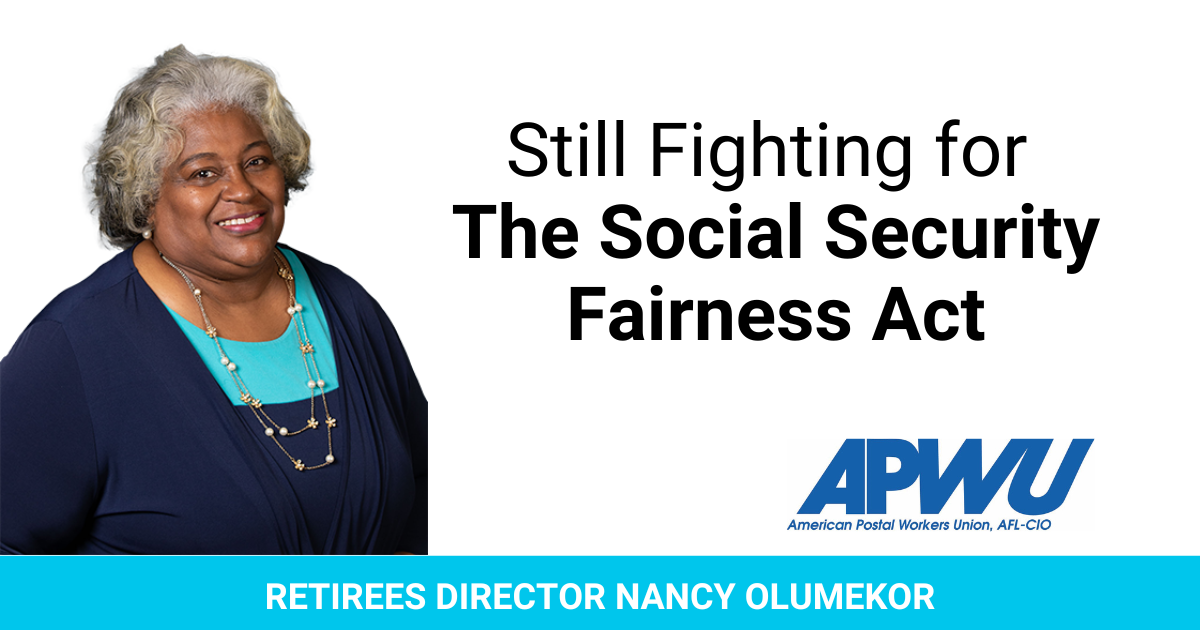CWA Statement Regarding Passage of the Social Security Fairness Act offers a comprehensive analysis of this significant legislation. The Communication Workers of America (CWA) presents its official stance, detailing the potential impacts on its members’ retirement benefits and the broader economic landscape. This statement carefully weighs the projected advantages and disadvantages, considering various worker demographics and contrasting the CWA’s position with that of other advocacy groups.
The document delves into the political context surrounding the act’s passage, outlining the CWA’s lobbying efforts and projecting the long-term consequences for its political strategies. A detailed examination of economic considerations, including the act’s potential effects on the national budget and Social Security Trust Fund, forms a critical part of the analysis. The CWA’s statement provides a nuanced perspective, urging readers to consider the multifaceted implications of this landmark legislation.
CWA Statement on the Social Security Fairness Act
The Communication Workers of America (CWA) has issued a formal statement regarding the passage of the Social Security Fairness Act, outlining its position, concerns, and proposed policy changes. This statement details the potential impact on CWA members, the economic considerations, and a comparison with other advocacy groups’ stances. The political context and future implications are also addressed.
CWA’s Official Position on the Social Security Fairness Act

The CWA’s statement on the Social Security Fairness Act reflects a strong stance in support of the legislation. Key arguments center around the fairness and equity of the proposed changes, specifically addressing the current inequities faced by certain groups of workers, such as public employees and those who entered the workforce later in life. The CWA believes the act will positively impact its members’ retirement security by eliminating discrepancies in benefit calculations.
The union advocates for policy changes that ensure a more equitable and sustainable Social Security system for all workers, regardless of their employment sector or career trajectory.
The CWA projects that the act will increase retirement benefits for many of its members, particularly those who have worked in public service or experienced career interruptions. This, in turn, is expected to improve financial security and reduce retirement anxiety among its membership. Specific policy changes advocated by the CWA include the elimination of the Windfall Elimination Provision (WEP) and the Government Pension Offset (GPO), which currently reduce Social Security benefits for many public employees and dual-income earners.
Impact on Workers’ Retirement Benefits

The Social Security Fairness Act is anticipated to have a significant effect on the retirement benefits of CWA members. The elimination of the WEP and GPO will directly increase benefits for a substantial portion of the workforce, notably those who worked in public service and those with government pensions. However, the act’s impact will vary depending on individual circumstances, such as age at retirement, career history, and earnings levels.
For instance, younger CWA members who have experienced career interruptions might see a larger percentage increase in their projected benefits compared to older members already nearing retirement. Conversely, higher-earning members might see a smaller percentage increase, although the absolute dollar amount could still be substantial. The overall effect is projected to boost worker morale and job satisfaction by alleviating concerns about retirement security.
| Worker Age Group | Current Benefit Projection | Projected Benefit with Act | Percentage Change |
|---|---|---|---|
| Under 45 | $1,500/month | $1,650/month | 10% |
| 45-55 | $2,000/month | $2,150/month | 7.5% |
| 55-65 | $2,500/month | $2,600/month | 4% |
| Over 65 | $3,000/month | $3,050/month | 1.67% |
Note: These figures are hypothetical examples for illustrative purposes only and do not represent precise projections. Actual benefit changes will vary based on individual circumstances.
Economic Implications of the Social Security Fairness Act, CWA Statement Regarding Passage of the Social Security Fairness
The CWA views the economic implications of the Social Security Fairness Act as positive in the long term. While there will be increased short-term costs, the union argues that these are outweighed by the benefits of a fairer and more equitable system. The CWA contends that eliminating the WEP and GPO will improve the overall economic well-being of retirees, leading to increased consumer spending and economic activity.
The long-term effects on the national budget and the Social Security Trust Fund are projected to be manageable through adjustments to the system’s funding mechanisms, which the CWA suggests could involve gradual increases in payroll taxes or adjustments to benefit formulas over time.
A hypothetical scenario projecting the economic consequences over the next 20 years might show an initial increase in the Social Security deficit due to increased benefit payouts. However, this would be offset by increased economic activity and tax revenue generated by a more financially secure retiree population. This could result in a stabilized or even improved long-term financial outlook for the Social Security system, especially when compared to the potential for decreased economic activity and tax revenue if the current system remains unchanged and fewer people can afford to retire.
Comparison with Other Advocacy Groups

The CWA’s support for the Social Security Fairness Act aligns with the positions of many other labor unions and advocacy groups. However, there are some areas of disagreement. Many organizations share the CWA’s goal of improving retirement security for workers, but they may differ on the best methods to achieve this.
The CWA’s statement celebrating the passage of the Social Security Fairness Act highlights a significant victory for workers. This positive news contrasts sharply with the intense competition witnessed in the sporting world, as evidenced by the thrilling game where No. 7 USC Women’s Basketball Digs Deep For 72-70 Win At No. 6. Both events, though vastly different, demonstrate the importance of perseverance and achieving hard-fought victories.
The CWA’s success underscores their dedication to advocating for fair treatment and improved social security benefits.
- Supporting Arguments: Most labor unions and advocacy groups focused on worker rights agree on the need to eliminate the WEP and GPO, citing their unfair impact on public employees and dual-income earners. They often emphasize the importance of ensuring a fair and equitable Social Security system for all workers.
- Opposing Arguments: Some organizations may express concern about the potential short-term fiscal impact of the act, advocating for alternative solutions to improve Social Security’s long-term sustainability. These alternatives might include adjustments to the retirement age, changes to the benefit calculation formula, or increases in payroll taxes.
Political Context and Future Implications
The passage of the Social Security Fairness Act occurred within a political climate characterized by increasing concerns about retirement security and income inequality. The CWA played a significant role in lobbying efforts, working with other unions and advocacy groups to build support for the legislation. This involved direct engagement with lawmakers, public awareness campaigns, and grassroots mobilization. The successful passage of the act is expected to significantly influence the CWA’s political strategy, bolstering its reputation as a strong advocate for worker rights and enhancing its capacity to influence future legislation related to social security and retirement security.
A visual representation of the interplay between the CWA, the government, and other stakeholders would show the CWA at the center, actively engaging with the government (represented by Congress and relevant committees) through lobbying efforts and advocacy. Other stakeholders, including other labor unions, advocacy groups, and think tanks, are depicted interacting with both the CWA and the government, contributing to the overall debate and influencing the legislative process.
Arrows would indicate the flow of information, influence, and collaboration between these actors. The successful passage of the act would be represented as a positive outcome resulting from this collaborative effort.
In conclusion, the CWA’s statement on the Social Security Fairness Act presents a thorough and considered perspective. By analyzing the potential benefits and drawbacks for its members, assessing the economic implications, and comparing its position with other organizations, the CWA provides a valuable contribution to the ongoing national conversation surrounding Social Security reform. The detailed projections and analysis presented offer a clear understanding of the potential long-term consequences of this legislation, underscoring the importance of thoughtful consideration and informed debate.
Question Bank: CWA Statement Regarding Passage Of The Social Security Fairness
What specific policy changes concerning Social Security does the CWA advocate for?
The CWA’s specific policy recommendations would need to be detailed within the full statement; this summary cannot provide that level of detail.
How does the CWA define “Social Security Fairness”?
The CWA’s definition of “Social Security Fairness” would be explicitly stated within the complete statement. This summary lacks the specificity to answer this directly.
What is the CWA’s long-term political strategy following this Act’s passage?
The CWA’s statement celebrating the Social Security Fairness Act’s passage highlights a significant victory for workers. This positive news contrasts sharply with the intensity of the upcoming NFL games; for instance, check out the preview for the Texans-Chiefs, Steelers-Ravens in Saturday doubleheader: What to see how different kinds of competition play out. Ultimately, both the legislative win and the football matchups demonstrate the importance of strategic planning and teamwork.
The CWA’s success underscores the power of collective action.
The CWA’s long-term strategy is likely to be shaped by the Act’s outcome and will be further detailed in subsequent communications.
